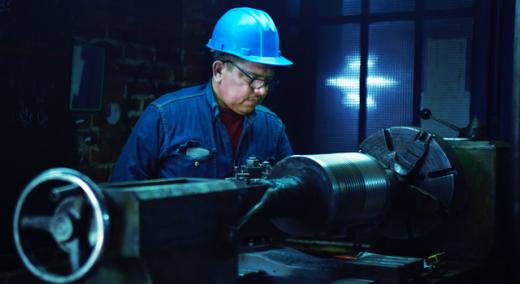
Credit:Rafael Juárez on Unsplash
Peter Drucker, celebrated by BusinessWeek magazine in 2005 as “the man who invented management,” is credited with a concept that has created confusion for me throughout my work life: the distinction between knowledge work and manual work.
|
ADVERTISEMENT |
In his 1959 book The Landmarks of Tomorrow (latest edition Routledge, 1996), Drucker defined knowledge workers as “high-level workers who apply theoretical and analytical knowledge, acquired through formal training, to develop products and services.”
The term “high level” has always made me bristle because of its implications about manual work. Drucker’s thesis, perhaps inadvertently, reinforced a 20th-century predisposition that manual work comprises mostly low-level, repetitive tasks that require only eyes and hands. Problem-solving, creativity, and innovation were in the domain of someone with a college degree.
…
Comments
I could not agree more! I am
I could not agree more! I am a Quality Systems Manager in a custom design/manufacturing company with skilled workers. Several of the advanced workers have contributed to the design and fabrication processes, making the end product more robust and reliable, and shortening the fabrication processes. I have often referred to the more gifted workers with a metaphore of "having PHDs in their hands." Most of these fine individuals have Tech School certificates and/or two-year degrees in technology.
Some of our best designers started on the plant floor developing advanced technical skills. They typically completed the required college courses later to move into Engineering, while still applying their years of technical experience to provide excellent designs.
Drucker and Knowledge Workers
I obtained a BS in engineering physics, MBA in business administration, and a PhD in industrial engineering. Then I spent 40 years in manufacturing, working for nine different companies in eight different industries. And while I feel I contributed to those businesses by applying theoretical and analytical knowledge I would be the first to say that those who know the raw materials, the process and the product are invaluable. In one injection molding plant, the best operators kept notebooks regarding process setting and produced the best products. One had a sixth grade education. Another an eighth grade degree. But approached in a respectful manner they would tell me some of their secrets, or advise me on customer issues. And they would listen and try some of my ideas. Respect goes both ways if you work at it.
Well Stated
Good point. Drucker's understanding sustains the notion that one must be "upper level" to have (and impart) knowledge. Clearly at odds with "everyone, everywhere, every day" that is the backbone of Lean management.
To answer your question: Yes!
Actually it is far past the time for management to get their noses out of the air and stop looking down on the hands-on people.
Drucker had it wrong, you have it right.
"high level" (so called)
Thank you for your article. I agree with what you wrote, and also with the comment of Bill POUND.
Very early in Toyota's years, Taiichi OHNO emphasized the importance of "gemba", the shop floor level, as the place where the true knowledge is. Being on vacations today, I can't check, but I believe that the following story is in "the Toyota way" by Jeffrey LIKERS : a young engineer enters the Toyota Motor company and is welcomed by OHNO himself. OHNO takes him in the workshop, then draw a circle on the floor with a chunk of chalk, ant tell him "stay in the circle, don't move, I'm back", and walks away. He returns only at the end of the work day and asks the young man "Now tell me, what did you learn today ?"
The real knowledge is on the gemba level, and "high level" people have to learn that very soon in their careers.
You can't solve problems with "white collars" alone. They would invent complicated solutions leading to further problems. And I must say that I used very, very few of the physics and chemistry I learned at the university during my 40 years in the industry. A little more for the maths and statistics.
Add new comment